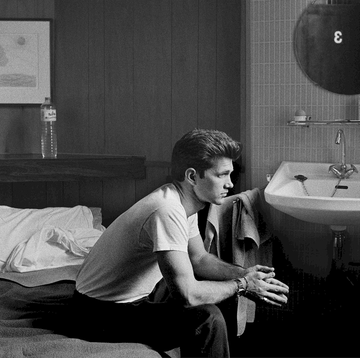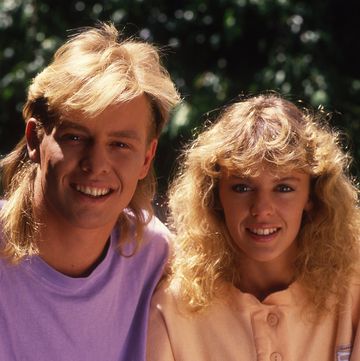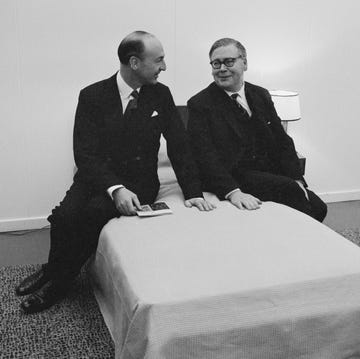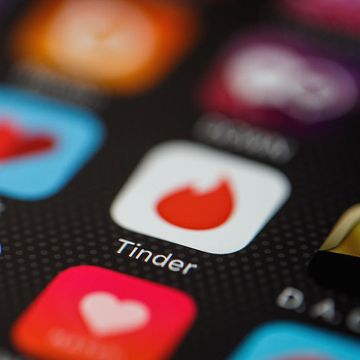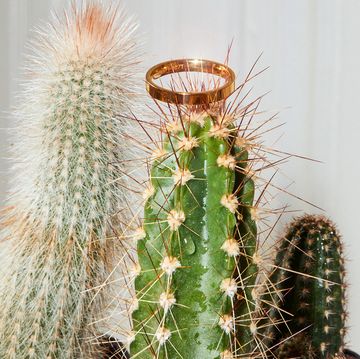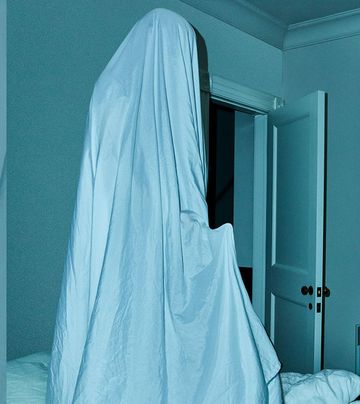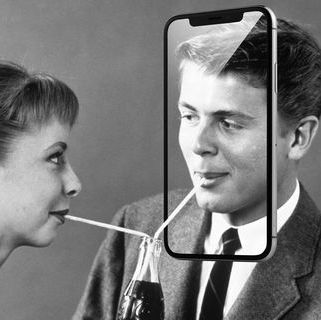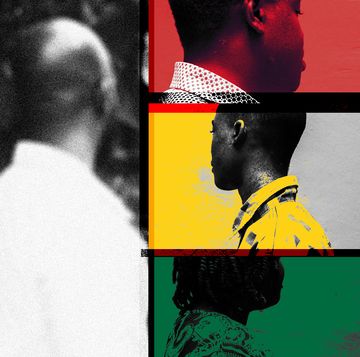12 September 2012 was a landmark day for technology as two former high school friends launched an app which would alter how millions of people communicate. Their platform offered something far more exciting than somewhere to upload your over-edited holiday photos or stalk your friends: it was going to help you start a conversation with the pretty girl at the bar.
Shaking off the stigma of sad desperation that had always clung to online dating, Tinder came along with a slick interface and enjoyable user experience, both of which tapped into our base human impulses of competition, vanity and trying to getting laid.
Founders Sean Rad and Justin Mateen took the name from a list of fire-related words, an early indication the pair were looking to find sparks and create heat between people, not necessarily happily ever afters.
Tinder stubbornly refused to tread the traditional territory of promising you'll find 'the one'. Instead, as Time magazine point out in their 2014 interview with Rad and Mateen, "The Tinder founders' biggest trick was to turn the app into a game that you would want to play even if you weren't looking for a date."
"We always saw Tinder, the interface, as a game," Rad said at the time. "Nobody joins Tinder because they're looking for something, they join because they want to have fun. It doesn't even matter if you match because swiping is so fun."
Fast-forward to 2017, and Tinder boasts 1.6bn swipes and 26m matches per day in over 190 countries. They claim this results in 1.5m dates per week, though whether they're scouring conversations or bugging your flat to find this out, who knows.
But despite such impressive figures, many people feel the initial shine of Tinder is fading with the app now saturated with dick pics, scams and time-wasters - a 2016 study concluded that men frequently swipe right on pictures with no objective other than a potential ego boost from a match.
In the same way people feel our physical interactions are being damaged by our obsession with social media, Tinder is threatening to kill off the spontaneous bar chat-up, an approach made thrilling by not knowing if someone is interested in you.
The mixture of fatigue and fascination surrounding the app was captured by a Vanity Fair article which surmised, '"Tinder sucks," they say. But they don't stop swiping.' The key part there being that millions are still swiping.
In an attempt to reignite the flame with bored users, and of course make some more dough, Tinder Gold was launched last month and swiftly became the number one paid iOs app. The upgrade allows users to see exactly who has swiped right on their profile without swiping right themselves, and its instant popularity shows Tinder still knows how to exploit our most self-absorbed tendencies.
Unlike the Super Like feature, which sounded a like a McDonald's breakfast option and was quickly dismissed as 'too keen' by users, Gold has bought the app some renewed relevance without being particularly groundbreaking.
But being a fancy stalker extension, of course, isn't the end goal for the company. Earlier this year Rad made eerie predictions about the extent to which technology and human interaction would intertwine, foreseeing that in five years Tinder might link with Siri to point you to a girl you 'might be attracted to' who is free tomorrow, and 'here's a gig you can buy tickets to by the way...'
Though it might feel like Tinder is coming for your organs, the only thing they care about and can make money from is keeping you on the app. In the same way that Facebook, despite extended negative press, has grown to the point of daily reliance for its users, Tinder wants to become an indispensable and embedded part of your routine.
And despite like amending the 'Keep Playing!' button to read 'Keep Swiping!', the gamification of dating remains central to this - so much so they've even retaining users after they've entered a relationship - new research shows that 42 per cent of users are not even single.
One competitor challenging them is Bumble, the dating platform where women make the first move started by former Tinder employee Whitney Wolfe, which now boasts more 18-29-year-olds and more female users. Another challenger is Hinge, who The Cut recently reported, "would be completely rebuilding its app to abandon swiping and focus instead on fomenting more serious connections between users." They concluded this was because, "The app's makers seem to have come to the realistic conclusion that no one is going to beat Tinder at its own game, so it might be time to do something else."
It seems Hinge is hoping that a less shallow design, where people can filter by hobbies and interests rather than just a selfie, might set them apart. Surprisingly Tinder still won't let you filter people by what sort of relationship you or they want.
With the success of Gold and a recent swipe-limit imposed on those not paying for premium, it isn't unimaginable that in five years time the free version Tinder will be so restricted and unenjoyable it isn't worth the slog.
Meanwhile there are plenty of more niche dating sites ready to plug the gap which place greater emphasis on finding a unique connection. Whether it is the recently released Hater, which matches people based on shared dislikes, or Feeld, an app for polyamorus couples to meet unicorns.
Outside the world of apps, an eHarmony report into dating in 2040 predicts an increase in assessing our biology and using advanced technology to find a partner. It predicted 'virtual reality dating' will be made possible by digital projections of smell, taste and even touch, making our use of our 2D photographs to judge people seem very outdated.
They also predict people will be analysing their genetic make-up through biotechnology to find the perfect match, and that the rise in artificial intelligence will allow assistance on every move we make whilst on a date. This would "provide singles with live advice on how their date is going, including everything from the topic of conversation to venue choice, and even which jokes to tell."
But back in our slightly less frightening present, Tinder probably isn't going anywhere fast. As long as the app mirrors our current obsessive and impatient relationship with technology, we will probably need to change before it does. In the same way that Instagram shows you people having a better time than you, Tinder burns a hole in your pocket telling you there's someone better out there, just Keep Swiping!



